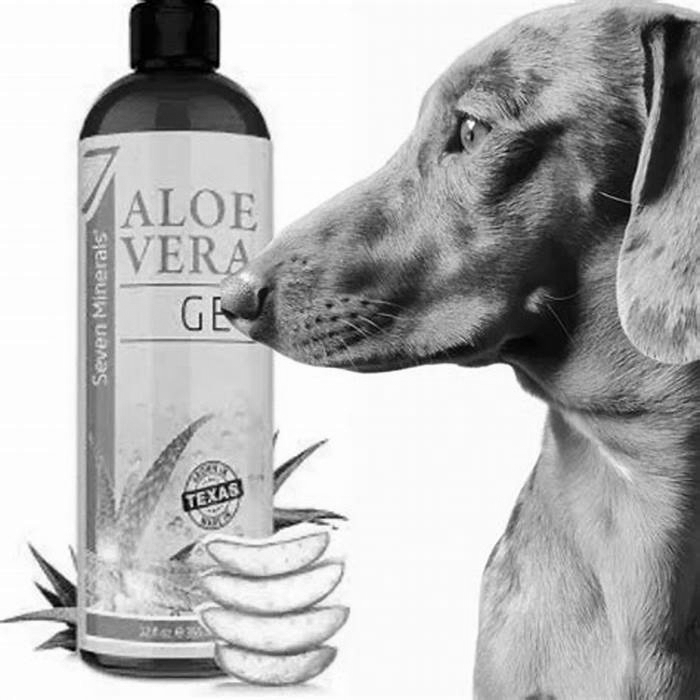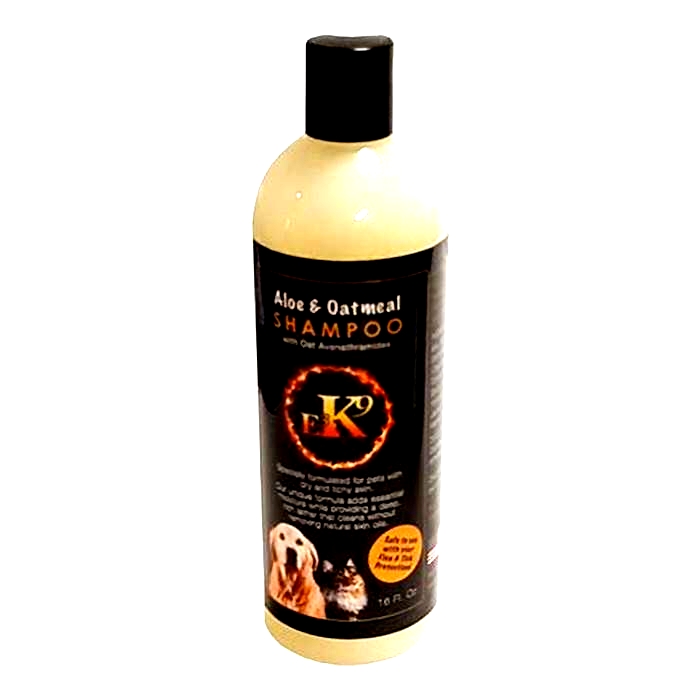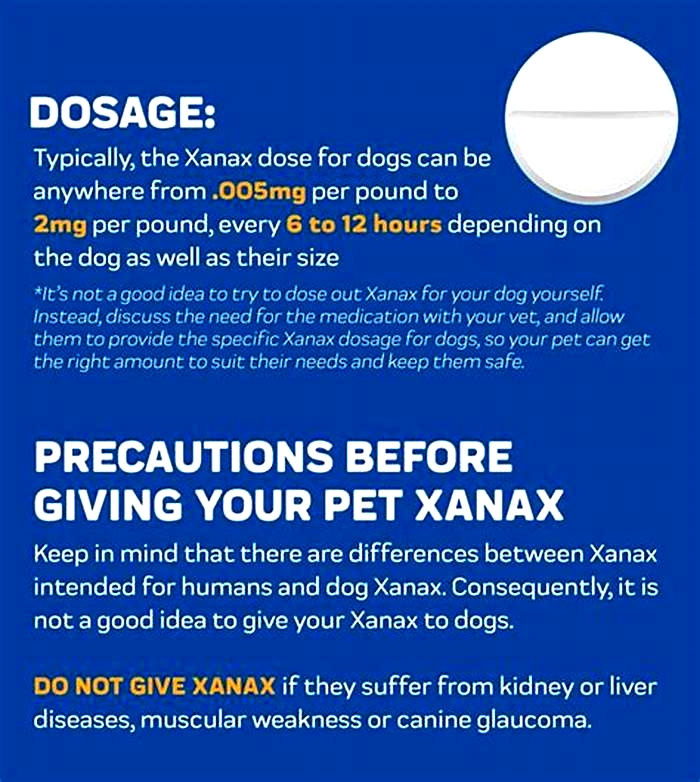why is aloe bad for dogs

Is Aloe Vera Poisonous to Dogs? Vet Reviewed Facts & FAQ

The information is current and up-to-date in accordance with the latest veterinarian research.
Learn moreAloe vera, belonging to the family Aloaceae, is one of the most popular medicinal plants prized by humans for its myriad health benefits, from wound-healing abilities and advantages for dental hygiene to wrinkle reduction. But as a dog parent, you may wonder: can dogs benefit from aloe vera in the same way as humans? Is it safe for them? The short answer is that aloe vera is toxic for dogs to eat but is safe to apply to the skin if handled correctly.
In this article, were going to take a closer look at this plants toxins and how to turn aloe vera into something good for your furry companion.
Is Aloe Vera Poisonous to Dogs?
If you break an aloe leaf, youll notice two things: a white sap around the edge (this is the latex the plant generates) and a clear or greenish slime in the middle (this is the material used to make the gel). The gel is not poisonous, but the latex can cause many problems.
Aloe latex acts as a purgative substance (it is a substance that usually causes diarrhea to empty the intestines). Fortunately, the plant has a terrible taste, but if your dog still consumes too much, they could experience mild stomach upset. In more severe cases, the toxin can cause vomiting and diarrhea.
The toxicity of this plant is considered mild to moderate. The main risk lies in dehydration due to vomiting and diarrhea. The more aloe your dog consumes, the more concern you should have.
Causes of Aloe Vera Poisoning in Dogs
Aloe vera poisoning can result from eating one large dose of the plant at a time, repetitive exposure, or both. This may happen when dogs:
- Swallow aloe vera leaves
- Consume products with aloe vera gel, latex, or supplements
- Have continuous exposure to aloe products
What to Do if Your Dog Eats Aloe Vera
Make an appointment with your vet immediately if youre afraid your beloved dog may have ingested some aloe plants. Typically, the worst that can happen to them is mild stomach discomfort. However, it can become serious based on how much your dog ate in relation to their size and tolerance. Your vet will provide you with detailed instructions.
Symptoms of Aloe Vera Poisoning in Dogs
In mild cases of aloe vera poisoning, vomiting and diarrhea are the most common symptoms. However, if your dog consumes enough aloe to cause severe illness, you can expect the following:
- Abdominal pain and bloating
- Depression
- Anorexia
- Changes in urine color
- Lethargy
- Tremors ( rare)
Even if your dog doesnt show any signs of toxicity yet, its still crucial that you schedule an appointment with your vet promptly if you suspect theyve consumed the plant before the poisoning worsens.
What Will the Vet Do for Your Dog?
Your vet will decide on the most suitable option for your dog based on the amount of aloe vera they have ingested, when they ate it, and the signs they are showing. To remove any remaining aloe in your dogs stomach, the vets may induce vomiting or perform a procedure called a gastric lavage. They may also place your canine on IV fluids to prevent dehydration. Once your four-legged friend is at home, monitor them carefully and make sure to go to all scheduled follow-up appointments.
Are There Any Benefits of Aloe Vera for Dogs?
Your furry companion will benefit from aloe vera if you use the right part of this tropical succulent in the right way. The plant can be used on dog skin and is reported to have anti-bacterial, anti-inflammatory, and anti-fungal properties. However, you must use this plant with caution and never allow your dog to consume it. It tastes bitter so most dogs will be deterred from licking the gel, but if youre not confident, its best to avoid using aloe vera products unless they are canine-specific.
Can You Put Aloe Vera on Your Dogs Hot Spots?
Aloe vera is believed to ease the pain of hot spots, but its best to take your dog to the vet if they have this condition. Although the plants anti-inflammatory benefits may be helpful, hot spots can be painful and may need the assistance of a vet to get them under control first. Once there, you can talk with the vet about using the gel from the plant.
How to Apply Aloe Vera on Dogs
Aloe vera gel has many applications. For example, you can use a thin layer of pale greenish gel to treat your dogs flaky skin, bug bites, or eczema. If you are utilizing aloe vera straight from your home plant, you must be mindful of the toxicity and other compounds in the leaves. After you cut out the leaf, youll see a clear gel inside and a yellowish liquid surrounding the gel (this is the latex layer you must remove).
On the other hand, if you are wary of using aloe gel from a home plant, get a safe product designed especially for canines instead. The market has many liquids, sprays, and lotion products available without the latex found in the leaf.
Other Plants That Are Toxic to Dogs
As it turns out, there are a ton of plants that are safe for humans to use but dangerous for dogs. Your dog should never, under any circumstances, have access to the following plants:
- Both the leaves and berries of English ivy
- Castor bean or castor oil plant
- Cyclamen
- Dumbcane
- Hemlock
- Mistletoe
- Oleander
- Thorn apple or jimsonweed
- Yew
Contact your local vet or the Animal Poison Control Center ASAP if you think your animal might have eaten something poisonous.
Conclusion
Dogs who consume aloe vera may become sick and suffer from vomiting and diarrhea as the primary signs. You usually have no idea whether the plants your dog chooses to taste are harmful or not unless you are a vet or a botanist. Therefore, you should pay attention to your dog when you are out for a walk to keep track of what they are eating.
We hope youve gained enough knowledge from reading this article to know about the toxicity of aloe vera, how to act appropriately if your dog accidentally consumes the plant, and how to apply it correctly for their benefit.
Featured Image Credit: casellesingold, Pixabay
Navigating Aloe Vera: A Cat Owners Guide to Feline Safety
As a holistic veterinarian, I often get asked, Is Aloe Vera toxic to cats? I understand your concern. We all want to keep our furry friends safe and healthy. Aloe Vera is known for its healing properties in humans, but when it comes to our cats, its a different story. This article will shed light on the effects of Aloe Vera on cats, signs of toxicity, and safe alternatives to use. So, lets embark on this journey of ensuring your cats safety around this common household plant.

The Toxicity of Aloe Vera to Cats
As a holistic veterinarian, I often get asked, Is Aloe Vera toxic to cats? The answer is, unfortunately, yes. While Aloe Vera is well-known for its healing properties in humans, it can be harmful to our feline friends.
How Aloe Vera Affects Cats
The problem lies in a compound called aloin, found in the outer leaf of the Aloe Vera plant. Aloin is a potent laxative, which can upset your cats digestive system. Ingesting Aloe Vera can lead to vomiting, diarrhea, loss of appetite, and even depression in cats. Its important to note that not all Aloe Vera products contain aloin. Some are safe for cats, but its always best to consult with your vet before introducing anything new to your cats diet or skincare routine.
Signs of Aloe Vera Poisoning in Cats
Recognizing the signs of Aloe Vera poisoning in cats is crucial for their health. Symptoms can include:
- Upset stomach or diarrhea
- Vomiting or retching
- Loss of appetite
- Depression or lethargy
- Change in urine color
If your cat exhibits any of these symptoms after coming into contact with Aloe Vera, its crucial to seek veterinary care immediately. Remember, early detection and treatment can make a significant difference in your cats recovery.
So while Aloe Vera might be a staple in your skincare routine, its essential to keep it out of paws reach to ensure your feline friends safety.
Aloe Vera Products Safe for Cats
While the Aloe Vera plant can be toxic to cats, not all Aloe Vera products pose a danger. Certain products, like shampoos and conditioners formulated specifically for cats, often contain a type of Aloe Vera thats been processed to remove the toxic components. However, always check the ingredients and consult with your vet before using any new product on your furry friend.
Precautions When Using Aloe Vera Around Cats
As a cat parent, its crucial to take precautions when using Aloe Vera around your cat. Here are some tips:
- Keep Aloe Vera plants out of reach: Cats are curious by nature and might nibble on your Aloe Vera plant. So, its best to keep it somewhere your cat cant access.
- Be cautious with Aloe Vera products: If youre using Aloe Vera creams or gels, ensure your cat doesnt lick it off your skin. Its also a good idea to wash your hands after applying these products.
- Consult your vet: Before using any Aloe Vera-based product on your cat, consult your vet to ensure its safe.
Remember, is Aloe Vera toxic to cats? Yes, but with careful use and by taking the necessary precautions, you can ensure your cat stays safe.
Alternatives to Aloe Vera for Cats
There are plenty of other natural remedies that are safe for cats. Chamomile, for example, has calming properties and can be used to soothe your cats skin. Calendula is also a great alternative; its known for its healing properties and can be used to treat minor cuts or burns. Just make sure to consult with your vet before using any new remedies on your feline friend.
Natural Remedies Safe for Cats
- Chamomile: Known for its calming properties, chamomile can help soothe your cats skin irritations. Its completely safe for cats, but always remember to use it sparingly.
- Calendula: This plant is known for its healing properties. It can be used to treat minor cuts, burns, or skin irritations. Its safe for cats, but as with any new remedy, its best to consult with your vet first.
Store-Bought Alternatives to Aloe Vera for Cats
If youre looking for store-bought alternatives, there are many options available. Cat-friendly skin creams or itch relief sprays can be a great alternative to aloe vera. Just make sure the product is labeled as safe for cats and doesnt contain any harmful ingredients.
- Cat-friendly skin creams: These creams are specifically designed for cats and can help soothe skin irritations. Always read the label to make sure it doesnt contain any harmful ingredients.
- Itch relief sprays: These sprays can provide instant relief for itchy skin. Again, make sure the product is labeled as safe for cats.
Remember, is Aloe Vera toxic to cats? Yes, it is. So, always be cautious when using products containing aloe vera around your feline friend. There are many safe alternatives available, so theres no need to risk your cats health.
Frequently Asked Questions
- Is Aloe Vera Safe for Cats? Aloe vera contains compounds that can be toxic to cats if ingested. The outer leaf part of the aloe plant contains latex, which has anthraquinones, substances that can cause vomiting, diarrhea, and other adverse effects in cats. However, the inner gel of the aloe leaf is often considered safe for topical use in small amounts. Its important to use products specifically formulated for pets and to consult with a veterinarian before using aloe vera on your cat.
- How Should I Use Aloe Vera for My Cat? If youre considering using aloe vera for your cat, its crucial to only use the inner gel part of the plant, which is less likely to contain the toxic compounds found in the outer leaf. For topical applications, such as treating minor skin irritations, use a small amount of a pet-safe aloe vera gel and apply it to the affected area. Avoid areas that the cat can easily lick. Always start with a small amount to test for any adverse reactions and consult your vet beforehand.
- What Are the Potential Risks of Using Aloe Vera on Cats? The primary risks of using aloe vera on cats stem from ingestion of the plant, particularly the outer leaf which contains aloin, an anthraquinone that can lead to gastrointestinal upset, lethargy, diarrhea, and vomiting. When used topically, theres still a risk if a cat licks and ingests the gel. Signs of aloe vera toxicity include vomiting, diarrhea, lethargy, and changes in urine color. Always monitor your cat closely after applying aloe vera topically and consult a vet if you notice any adverse reactions.
- Can I Use Aloe Vera on My Cats Skin for Minor Irritations? Yes, with caution. The inner gel of aloe vera can be used on cats skin for minor irritations, burns, or wounds. Its essential to ensure the gel is pure, free from additives, and to apply it sparingly to avoid ingestion by the cat. Test a small area first for any allergic reactions. Its best to use products specifically designed for pets to ensure safety.
- How Do I Know if My Cat is Having a Negative Reaction to Aloe Vera? If your cat has a negative reaction to aloe vera, you might notice symptoms such as skin irritation or redness at the application site, vomiting, diarrhea, lethargy, or changes in behavior. If the aloe vera was ingested, symptoms could be more severe. If you observe any of these signs or suspect your cat has ingested part of an aloe plant, contact your veterinarian immediately for advice.









